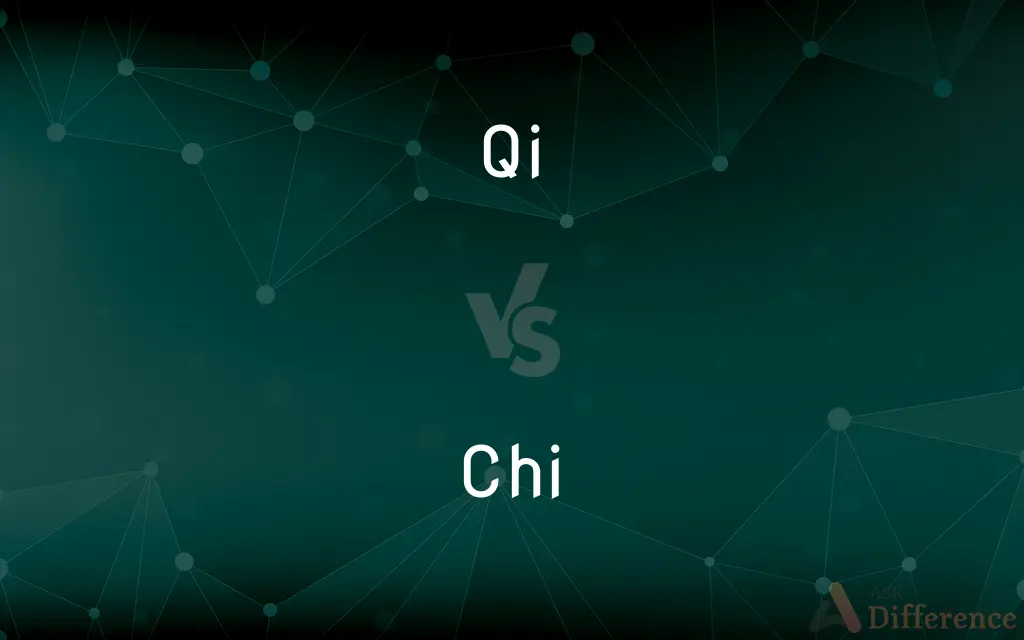Qi vs. Chi — What's the Difference?

Difference Between Qi and Chi
ADVERTISEMENT
Compare with Definitions
Qi
In traditional Chinese culture, qi, also ki or ch'i in Wade–Giles romanization ( CHEE simplified Chinese: 气; traditional Chinese: 氣; pinyin: qì qì), is believed to be a vital force forming part of any living entity. Literally meaning "vapor", "air", or "breath", the word qi is often translated as "vital energy", "vital force", "material energy", or simply as "energy".
Chi
The 22nd letter of the Greek alphabet. See Table at alphabet.
Qi
Variant of chi2.
Chi
The vital force believed in Taoism and other Chinese thought to be inherent in all things. The unimpeded circulation of chi and a balance of its negative and positive forms in the body are held to be essential to good health in traditional Chinese medicine.
Qi
(philosophy) chi
ADVERTISEMENT
Chi
The twenty-second letter of the Classical and Modern Greek alphabets.
Qi
The circulating life energy that in Chinese philosophy is thought to be inherent in all things; in traditional Chinese medicine the balance of negative and positive forms in the body is believed to be essential for good health
Chi
(philosophy) A life force in traditional Chinese philosophy, culture, medicine, etc, related (but not limited) to breath and circulation.
Chi
The Chinese foot, a traditional Chinese unit of length based on the human forearm.
Chi
The Chinese unit of length standardized in 1984 as 1/3 of a meter.
Chi
The Taiwanese unit of length standardized as 10/33 of a meter, identical to the Japanese shaku.
Chi
The chek or Hong Kong foot, a unit of length standardized as 0.371475 meters.
Chi
The circulating life energy that in Chinese philosophy is thought to be inherent in all things; in traditional Chinese medicine the balance of negative and positive forms in the body is believed to be essential for good health
Chi
The 22nd letter of the Greek alphabet
Share Your Discovery

Previous Comparison
Backpack vs. Purse
Next Comparison
Mystic vs. Mythical














































